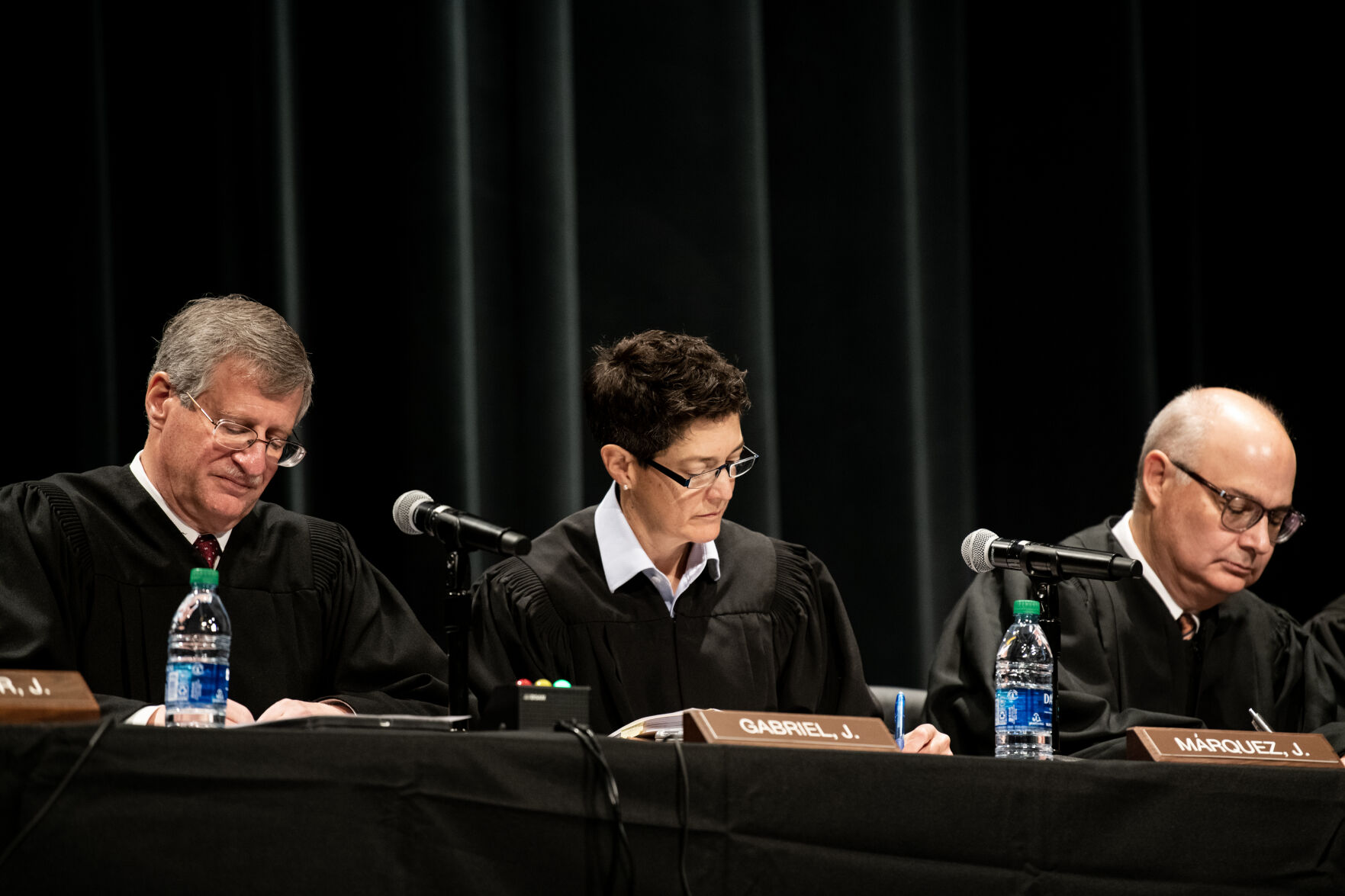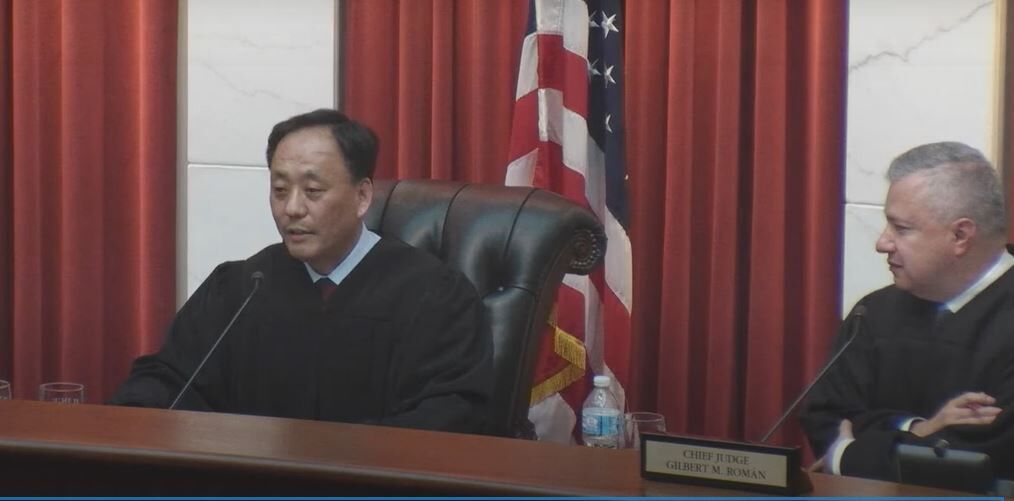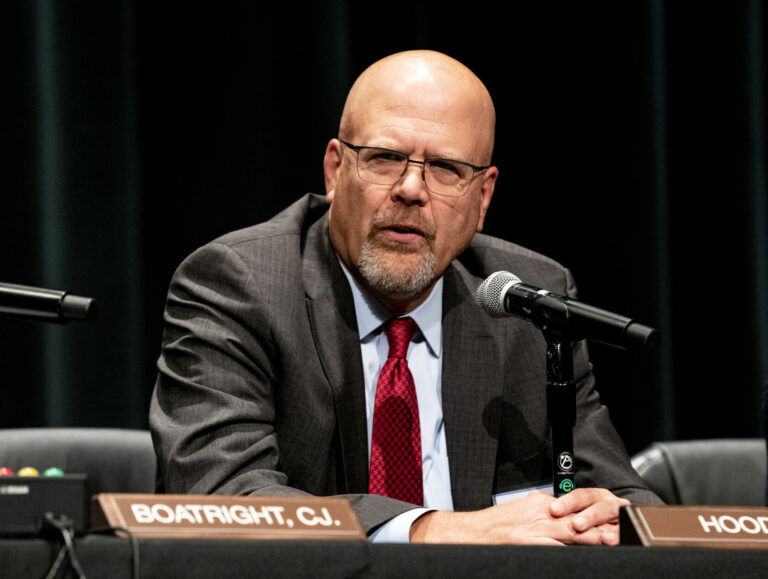Colorado justices weigh timeline to sue for injured children

Under Colorado law, when a person is injured in a motor vehicle accident, they have three years to sue. If the person is a child, the deadline is three years from the date of the accident or two years after turning 18, whichever is later.
The state Supreme Court, however, considered on Wednesday what happens if the injured child turns 18 during the three-year window. Daniala Mohammadi, who was injured in a car accident at age 16, argued a different deadline should apply in that circumstance: Victims should have the full three years from their 18th birthday to sue.
The Court of Appeals agreed with her, prompting the man who hit her, Mark Kinslow, to ask the Supreme Court to weigh in.
“You’re always going to have cutoffs,” said attorney Evan B. Stephenson during oral arguments. “What is being called ‘inequitable’ is the legislature’s policy judgment to have a deadline-type statute for this class of claims. If someone thinks that’s inequitable, it should be addressed to the legislature.”
Mohammadi’s lawyer countered that the Supreme Court has previously said the concept of “tolling” – pausing the statute of limitations until a child turns 18 – is meant to protect the rights of minors. That protection would be diminished if Mohammadi’s time underage counted against her.
“An adult would get three years. And Ms. Mohammadi, I guess, arguably would get three years, but part of that would run during her minority,” said lawyer Anthony Viorst. “So, she wouldn’t get three years when she turns to an adult.”
“She should at least get three years an adult?” wondered Justice William W. Hood III.
“I would believe so,” said Viorst.
Kinslow hit Mohammadi with his car while turning onto S. Parker Road in Arapahoe County on Nov. 6, 2015. Mohammadi received treatment for her injuries. She sued Kinslow in December 2019, days before her 21st birthday.
A trial judge dismissed the claims, finding Mohammadi filed suit beyond the statute of limitations. Then in 2022, a three-judge panel of the Court of Appeals reinstated the case by a vote of 2-1.
Judge David H. Yun, writing for the majority, acknowledged the timeline seemingly laid out in law. Mohammadi was under 18 at the time of the accident, which provided two possible deadlines: three years from her accident, meaning November 2018, or two years from her 18th birthday, meaning January 2019. Even under the later of the two dates, Mohammadi’s lawsuit was tardy.
However, Yun explained, the Colorado Supreme Court has indicated the statute of limitations for minors is on pause until they turn 18.
“Consequently, as she argued, Mohammadi had until January 1, 2020 – three years from her eighteenth birthday – to file her action,” he wrote.

Judge Craig R. Welling dissented, pointing out the Supreme Court’s prior cases addressed children who did not turn 18 until well after the normal window to sue had expired. Because Mohammadi turned 18 while the clock was running, the law clearly contemplated she had two years from her birthday or the remaining time left on the clock, whichever was greater.
“My heartstrings are tugged here, but I think the language is problematic for your side,” Justice Richard L. Gabriel acknowledged to Mohammadi’s lawyer.
Viorst responded that the law was “poorly drafted,” and giving injured children less than full three years to sue after becoming adults would not protect their rights.
“You would not be protecting Ms. Mohammadi in this situation at all. You’d be harming her,” Viorst said.
“Not necessarily,” interjected Justice Monica M. Márquez. “I think your opposing counsel would say the ‘break’ given to the minor in this instance would be the additional two years (from her 18th birthday). That’s protecting minors. Giving them extra time.”
Stephenson reassured the justices that dismissing Mohammadi’s lawsuit as untimely would not be unjust.
“The date of birth is known. The date of the accident is known. It’s not like we have Schrödinger’s cat where we don’t know until it’s too late or we can’t figure these things out,” he said.
Justice Melissa Hart was not present for oral arguments, but will participate in the decision. Chief Justice Brian D. Boatright announced she was “not available to be here.” The Supreme Court’s clerk had no further information about Hart’s absence.
The case is Kinslow v. Mohammadi.














